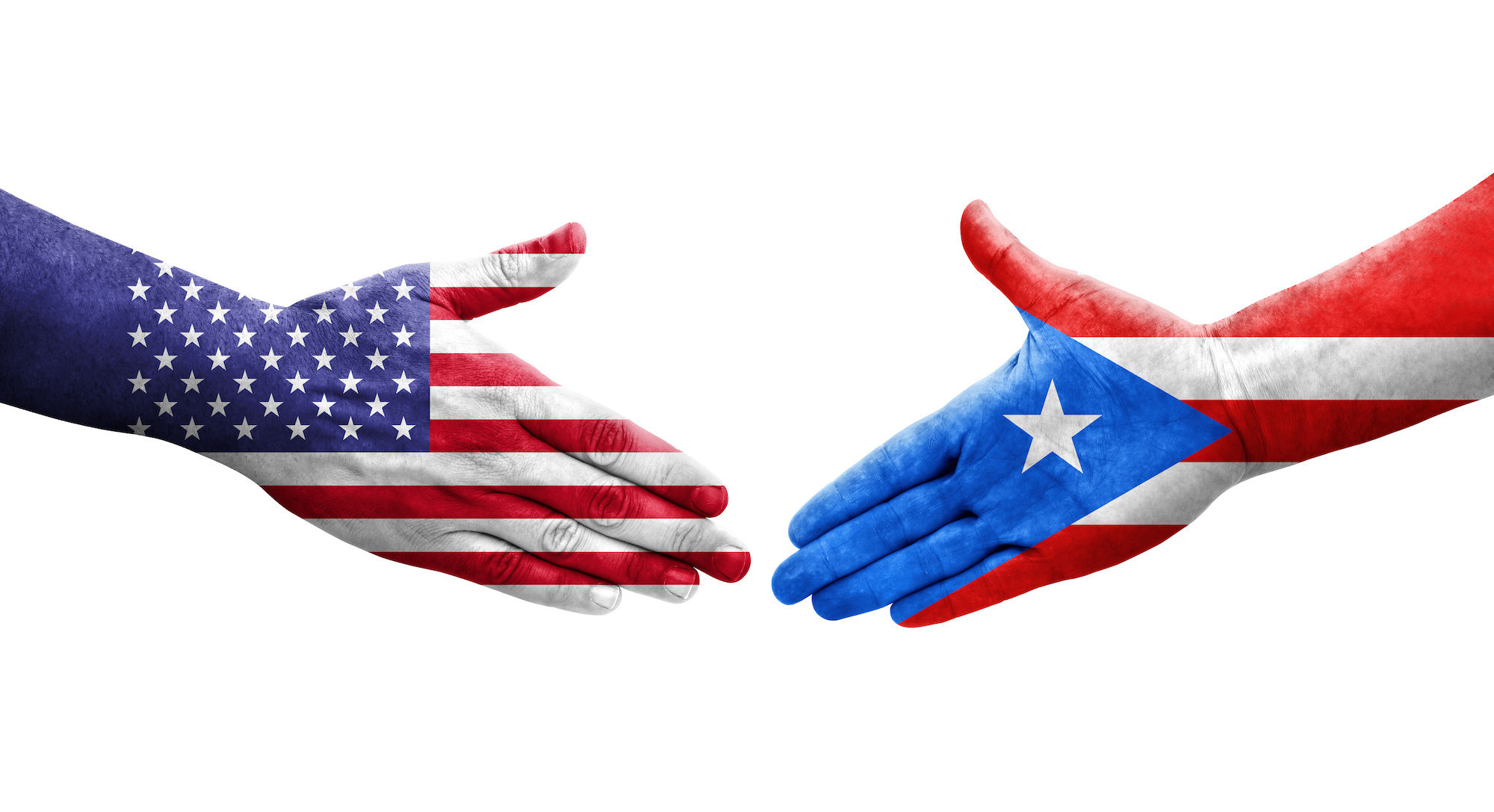The Puerto Rico Status Act calls for one more status vote in Puerto Rico. The status options to be placed on the ballot include statehood, independence, and sovereignty in free association with the United States. Critics of the bill have asked for clear definitions of the three status options, and the bill attempts to do that. Defining free association, however, continues to be a problem.
Statehood is a clear status. We can look at the current 50 states — which we have done many times at this website — and the U.S. Constitution and find all the details of statehood.
Independence is also a clear option. There are 195 independent nations in the world. They are all different from one another, but they provide clear guideposts for what it means to be an independent nation.
Defining free association is more difficult. We can also see examples of nations which are in free association with the United States. There are three: Palau, the Marshall Islands, and the Federated States of Micronesia. Here’s what the Department of the Interior says about them:
“As agreed by the FAS governments, and approved by their people in U.N. observed plebiscites, the Compacts are consistent with resolutions of the U.N. General Assembly defining free association as a non-colonial political status. That includes the principle that the FAS are sovereign nations with full rights of democratic self-determination and self-government.”
The document goes on to say, “[B]oth the United States and the FAS individually retain the right to full independence. That includes the unencumbered ability to terminate the free association status defined by the Compacts. Termination may be done by mutual agreement, or each nation may do so unilaterally or by mutual agreement, subject to the transitional terms and provisions set forth in the Compact.”
They are sovereign nations. They are independent countries, not a part of the United States. Their citizens are not U.S. citizens, and they are not covered by the U.S. Constitution.
Redefining free association
Supporters of free association often disagree with this definition of free association. They say that it is not a form of independence. The fact that the FAS (Free associated stats) are independent nations is stated clearly not only in the document we quoted above but over and over in documents and statements from multiple agencies of the federal government.
Supporters of free association for Puerto Rico claim that Puerto Rico could have a completely different type of free association, one that is different from the relationships the current FAS have with the United States. They make entirely unsupported statements like, “Free association is a ‘middle ground’ status by which the interests of all parties can be reconciled, and each can become a winner.”
Where do they get this idea?
Other examples of free association
We can find other examples of free association through space and time.
- Under the 1946 constitution of France, the nations of Vietnam, Cambodia, and Laos were identified as “associated states” though not as free associated states. They continued to be colonies of France until they gained independence.
- The Cook Islands are an associated state of New Zealand. They are citizens of New Zealand, but New Zealand has said that if either joins the United Nations, they will lose that right.
- In the 20th century, Great Britain declared five of its former colonies associated states. They all became independent nations shortly thereafter.
What about the United Nations?
The United Nations is often cited as an authority for the possibility of other kinds of free association. For example, the Danish Institute for International Studies gives this definition of free association:
“In 1960, the UN General Assembly set forth three options for decolonisation: independence as a sovereign independent State, integration with another independent State, and Free Association with an independent State. Only five former colonies have opted for Free Association and each has a bespoke relationship with a former colonial power.”
“Bespoke relationship” means that the five FAS (three with the U.S. and two with New Zealand) have individual; Compacts of free Association, rather than following a specific ruling from the United Nations.
Indeed, the “free” part of “free association” means that the nations involved make their own definitions of free association. The United States is not bound by anyone else’s ideas about free association. We can clearly see that, while the United States has three nations with Compacts of Free Association, none of those three has ever had U.S. citizenship. That’s how New Zealand does it, and how Great Britain used to do it, but the United States has never made that choice.
What about Puerto Rico?
The Puerto Rico Status Act currently states that a free associated state of Puerto Rico would give its citizens U.S. citizenship. In fact, voters cannot know ahead of time whether the United States would agree to this while negotiating a COFA with Puerto Rico. They cannot know whether the U.S. would continue to allow dual citizenship for Puerto Rico, since COFAs can be renegotiated or terminated unilaterally at any time.
History suggests that this would not happen.








No responses yet